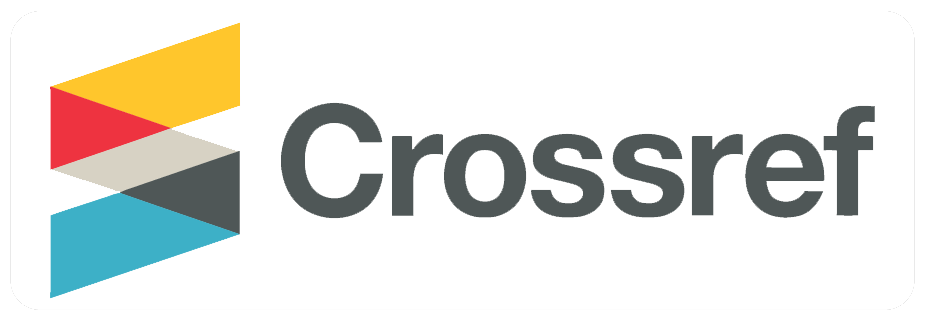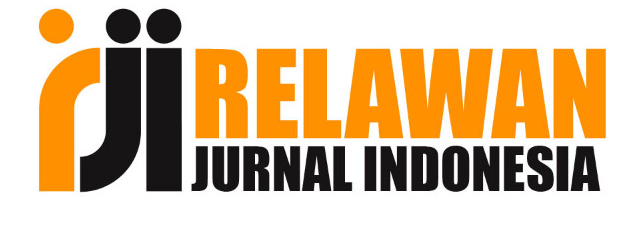Determinasi Knowledge Management Success Factors pada Universitas Swasta di Palembang Studi Kasus: Universitas Indo Global Mandiri
DOI:
https://doi.org/10.36982/jiig.v9i1.498Abstrak
Abstract
Knowledge management (KM) is very important for organizations to increase competitive advantage. While many KM issues have been discussed by many researchers, there is a desire for studies aimed at the adoption and practice of KM in higher education, especially private universities. The purpose of this research is to identify, find, extract and classify several factors for the success of Knowledge Management implementation for the University. This study involved 37 lecturers from a private university in Palembang as respondents. through factor analysis with the Principal Component Analysis method, several factors have been successfully determined and grouped according to their components. These factors are: Organization Culture, Organization Structure, IT Infrastructure, Common Knowledge, Physical Environment, Internalization, and Externalization.
Keywords : KM, CSF, Private University, PCA
Â
Abstrak
Knowledge Management (KM) sangat penting bagi organisasi untuk meningkatkan keunggulan kompetitif. Sementara itu topik KM telah banyak dibahas oleh beberapa penelitian sebelumnya, adanya ketertarikan untuk meneliti proses adopsi dan praktek KM pada pendidikan tinggi, terutama universitas swasta. Tujuan penelitian ini adalah untuk mengidentifikasi, menemukan, mengekstrak dan mengklasifikasikan beberapa faktor keberhasilan (Critical Success Factor) implementasi Knowledge Manajemen pada Universitas Swasta. Penelitian ini melibatkan 37 orang dosen salah satu universitas swasta di Palembang sebagai responden. Melalui analisis faktor dengan metode Principal Component Analysis (PCA), beberapa faktor telah berhasil ditentukan dan dikelompokkan sesuai dengan komponennya. Faktor-faktor ini adalah: Budaya Organisasi, Struktur Organisasi, Infrastruktur TI, Pengetahuan Umum, Lingkungan Fisik, Internalisasi, dan Eksternalisasi.
Kata kunci : KM, CSF, Universitas Swasta, PCA
Referensi
Adebowale Ojo, “Knowledge Management in Nigerian Universities: A Conceptual Model,†Interdiscip. J. Infromation, Knowl. Manag., pp. 331–345, 2016.
R. Masa’deh, R. Shannak, M. Maqableh, and A. Tarhini, “The impact of knowledge management on job performance in higher education: The case of the University of Jordan,†J. Enterp. Inf. Manag., vol. 30, no. 2, pp. 244–262, 2017.
L. S. Ling, O. P. Tee, and U. C. Eze, “Conceptualizing knowledge management and information infrastructure capability for competitive advantage: A Malaysian perspective,†J. Glob. Inf. Technol. Manag., vol. 17, no. 2, pp. 117–138, 2014.
T. Andreeva and A. Kianto, “Does knowledge management really matter? Linking knowledge management practices, competitiveness and economic performance,†J. Knowl. Manag., vol. 16, no. 4, pp. 617–636, 2012.
R. Dayan, P. Heisig, and F. Matos, “Knowledge management as a factor for the formulation and implementation of organization strategy,†J. Knowl. Manag., vol. 21, no. 2, pp. 308–329, 2017.
H. Inkinen, “Review of empirical research on knowledge management practices and firm performance,†J. Knowl. Manag., vol. 20, no. 2, pp. 230–257, 2016.
M. M. Mazdeh and R. Hesamamiri, “Knowledge management reliability and its impact on organizational performance: An empirical study,†Progr. Electron. Libr. Inf. Syst., vol. 48, no. 2, pp. 102–126, 2014.
A. Hassan and A. Bakar, “Assessing Knowledge Management Processes and Competitive Advantage in Local Authorities using Knowledge Management Assessment Instrument ( KMAI ),†IGI Glob. Disseminator Knowl., pp. 294–314, 2014.
F. O. Omotayo, “Knowledge Management as an important tool in organisational management : A review of literature,†Libr. Philos. Pract. (e-journal)., vol. 1238, pp. 1–23, 2015.
R. Vandaie, “Knowledge-Based Systems The role of organizational knowledge management in successful ERP implementation projects,†Knowledge-Based Syst., vol. 21, no. 8, pp. 920–926, 2008.
O. K. Creation, I. Nonaka, T. Knowledge, and E. Knowledge, “Nonaka ’ s Four Modes of Knowledge Conversion,†Organization, vol. 5, pp. 14–37, 1997.
F. A. Calabrese and C. Y. Orlando, “Deriving a 12-step process to create and implement a comprehensive knowledge management system,†Vine, vol. 36, no. 3, pp. 238–254, 2010.
W. Wu, “Segmenting critical factors for successful knowledge management implementation using the fuzzy DEMATEL method,†Appl. Soft Comput. J., vol. 12, no. 1, pp. 527–535, 2012.
N. Valaei and K. A. Aziz, “Awareness : A Study of Knowledge Management Adoption amongst Iranian SMEs,†vol. 2012, 2012.
L. E. Z. Cantu and C. E. Mondragon, “Knowledge management in Mexican NPOs : a comparative study in organizations with a local and national presence,†vol. 20, no. 1, pp. 69–87, 2016.
F. B. Mohammad bashir Sedighi, Sander van Splunter, Fardad Zand, “Evaluating Critical Success Factors Model of Knowledge Management: An Analytic Hierarchy Process (AHP) Approach,†Int. J. Knowl. Manag., vol. 11, no. September, pp. 17–36, 2015.
P. Akhavan and M. R. Zahedi, “Critical Success Factors in Knowledge Management Among Project-Based Organizations : A Multi-Case Analysis,†vol. XII, no. 1, pp. 20–39, 2014.
M. S. Sohail and S. Daud, “Knowledge sharing in higher education institutions: Perspectives from Malaysia,†Vine, vol. 39, no. 2, pp. 125–142, 2009.
F. Faradillah, “BCOR Analysis Affect The Adoption of Knowledge Management System ( KMS ),†vol. 4, no. 1, 2017.
J. C. F. De Winter and D. Dodou, “Common Factor Analysis versus Principal Component Analysis: A Comparison of Loadings by Means of Simulations,†Commun. Stat. Simul. Comput., vol. 45, no. 1, 2016.
D. D. Suhr, “Principal Component Analysis vs. Exploratory Factor Analysis,†in SUGI 30, 2005.
B. S. E. Sabine Landau, A Handbook of Statistical Analyses Using SPSS. 2010.
Unduhan
Diterbitkan
Cara Mengutip
Terbitan
Bagian
Lisensi

This work is licensed under a Creative Commons Attribution-ShareAlike 4.0 International License.











